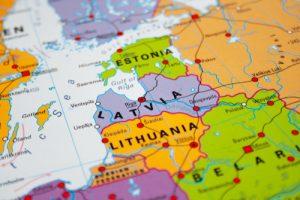
U.S. Rep. Don Bacon (R-NE) and his fellow House Baltic Caucus co-chair on Wednesday commended the first-ever authorization of the Baltic Security Initiative being included in a federal defense bill currently under consideration in Congress.
“The partnership and friendship between the U.S. and Baltic states must be maintained for years, and our provision achieves that,” said Rep. Bacon, who co-chairs the caucus with U.S. Rep. Ruben Gallego (D-AZ).
The $175 million authorization has been included in the National Defense Authorization Act (NDAA) for Fiscal Year 2022, H.R. 4350, which is under consideration by the U.S. House of Representatives. The provision would help ensure the security of the Baltic nations of Latvia, Lithuania, and Estonia, which the lawmakers said are critical to the security of the NATO alliance.
“As co-chairs of the House Baltic Caucus, Rep. Gallego and I support our NATO allies and are always working to strengthen and advance the security and prosperity of all NATO member countries,” Rep. Bacon said. “Our security initiative needs to be included in this year’s NDAA so that we can continue deterring Russian aggression, bolster air and naval defense capabilities, and expand special forces operations in the Baltic region.”
The Baltic Security Initiative would provide funds for assistance with respect to air defense, maritime situational awareness, ammunition, special forces, anti-tank capabilities, and other defense capabilities, as well as Command, Control, Communications, Computers (C4) Intelligence, according to a summary provided by Rep. Bacon’s office.
“With the growing threat of Russia and the need to ensure the United States’ national security interests, it is critical we stand strong and support our Baltic allies of Latvia, Lithuania, and Estonia,” added Rep. Gallego. “The Baltic Security Initiative is a crucial part of keeping Putin in check, and NDAA authorization of this program sends a message to the Kremlin that we are standing strong with our Baltic and NATO allies.”
The bipartisan House Baltic Caucus, which was formed in 1997, has 71 members from both the Republican and Democratic parties.



